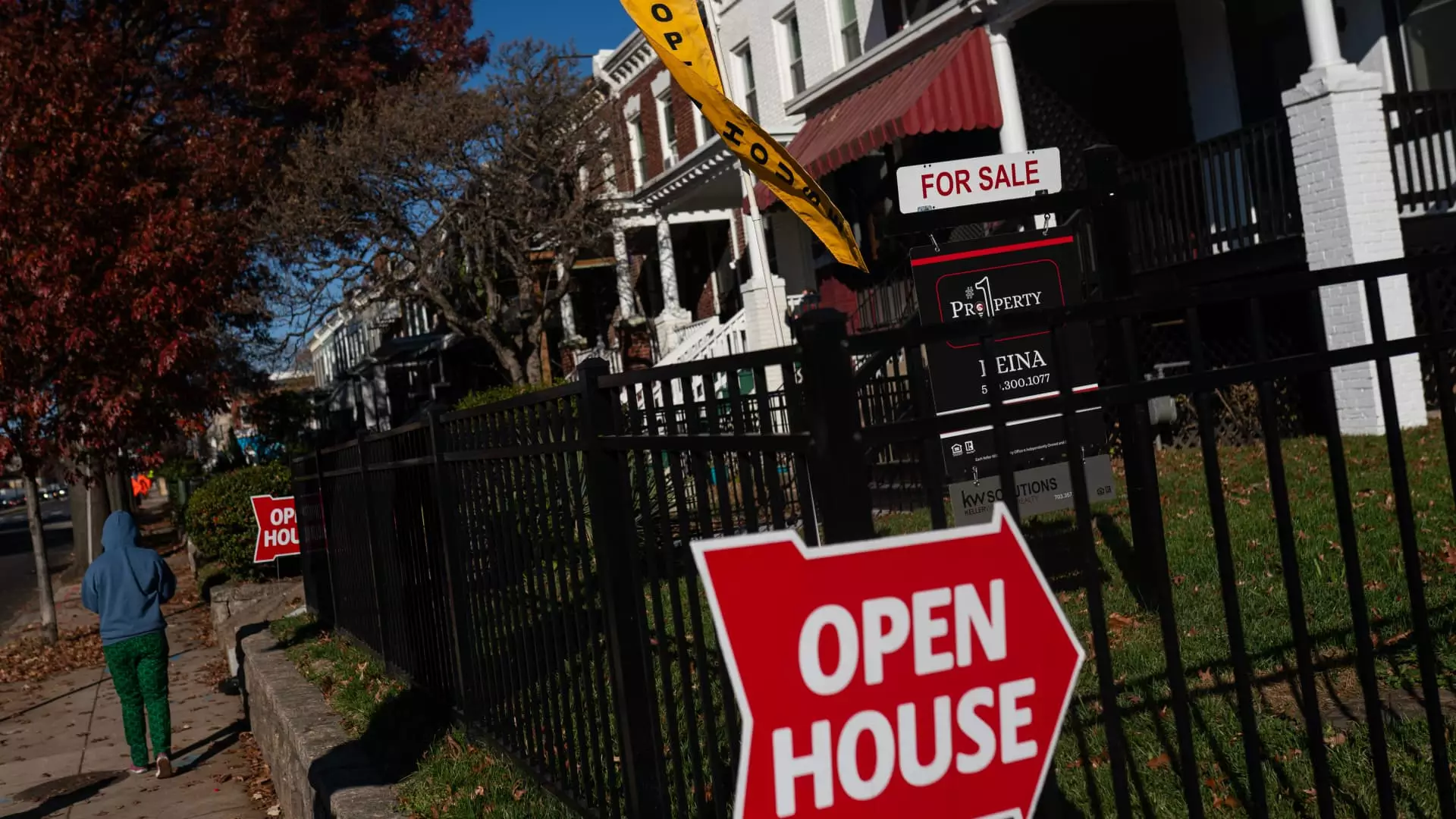The story of Maryland Governor Wes Moore offers a compelling lens through which to view the escalating housing crisis. At an age when most children are concerned with play and learning, Moore faced his mother’s ultimatum: military school or continued misbehavior. His eventual enrollment at a Pennsylvania military institution at age 13 marked the beginning of a transformative journey, albeit fraught with challenges. After multiple escape attempts within the first few days, Moore ultimately credited this experience as pivotal to his life. This is a narrative that resonates with resilience, drawing a parallel between personal struggles and the broader socio-political climate regarding housing affordability.
Moore’s remarks on the importance of housing at a recent BlackRock conference underscore a critical societal issue. Affordable housing isn’t merely a roof over one’s head; it represents a reservoir of security and a vehicle for social mobility. His family’s sacrifice—his grandparents leveraging their own hard-earned American Dream to fund his education—highlights both the importance and pressure of intergenerational wealth. It raises a crucial point: as we dig deeper into the systemic issues faced by many Americans, the question becomes not just about aspiration but also about attainment.
Rising Costs and Alarming Trends
The figures are jarring: approximately 30% of young residents in Maryland are contemplating relocation due to housing costs. This statistic sheds light on a troubling trend not isolated to Maryland. Nationwide, soaring housing prices coupled with rising interest rates and stagnant wages are leaving many aspiring first-time homeowners in the lurch. The data from the Joint Center for Housing Studies indicates that renters spending over 30% of their income—considered cost-burdened—are at an all-time high. This ties directly back to the generational disparities Moore highlighted.
It’s no exaggeration to assert that today’s 35- to 44-year-olds—the demographic typically gearing up to purchase homes—are at a distinct disadvantage compared to those from previous generations. Various studies reveal that this cohort’s homeownership rates have sunk more than 10% since 1980. This decline is compounded by social factors: household formation is lower, primarily due to economic constraints that prevent many from moving toward marriage or stable family structures. The complexity of affordability crisis is multi-layered and deeply interconnected with social stratification.
Education, Inequality, and Home Ownership Gaps
Educational attainment plays a crucial role in today’s housing crisis. Research conducted by the Urban Institute reveals an alarming trend: lower-income households are increasingly less likely to have college-educated heads of household. This lack of educational access inhibits not only immediate financial stability but also long-term wealth accumulation opportunities, further entrenching systemic inequalities.
A stark racial divide also characterizes this housing landscape. Despite a noted increase in Black homeownership rates—a jump to 44.7%—the gap remains glaring when juxtaposed against the 72.4% ownership rate for white Americans. The persistent discrepancy speaks to the enduring impacts of historical inequalities and systemic racism within the housing market. While factors like strong wage growth among younger generations are contributing positively, it is essential to recognize that many families still find themselves trapped in a cycle of renting rather than owning, which stifles their potential for financial growth.
Policy Changes are Imperative
To navigate this complex crisis, we must advocate for robust policy changes that target the root causes of housing inequitability. Proposed reforms would do well to include educational initiatives aimed at low-income families, targeted financial assistance for down payments, and regulatory measures aimed at promoting housing production. A critical reevaluation of zoning laws is necessary—current restrictions can be overly burdensome, stymying the development of affordable housing.
As a society, we cannot afford to remain passive while a significant portion of our population struggles for basic stability. The implications extend far beyond individual hardship; they seep into the fabric of society, affecting everything from social mobility to economic growth. The future generations deserve more than a string of disheartening statistics; they deserve a genuine chance at homeownership. Against the backdrop of Governor Moore’s inspiring story, we must question: how can we cultivate a stable housing environment that mirrors the sacrifices of those who came before us, rather than perpetuating cycles of struggle? This is the urgent challenge we face.

